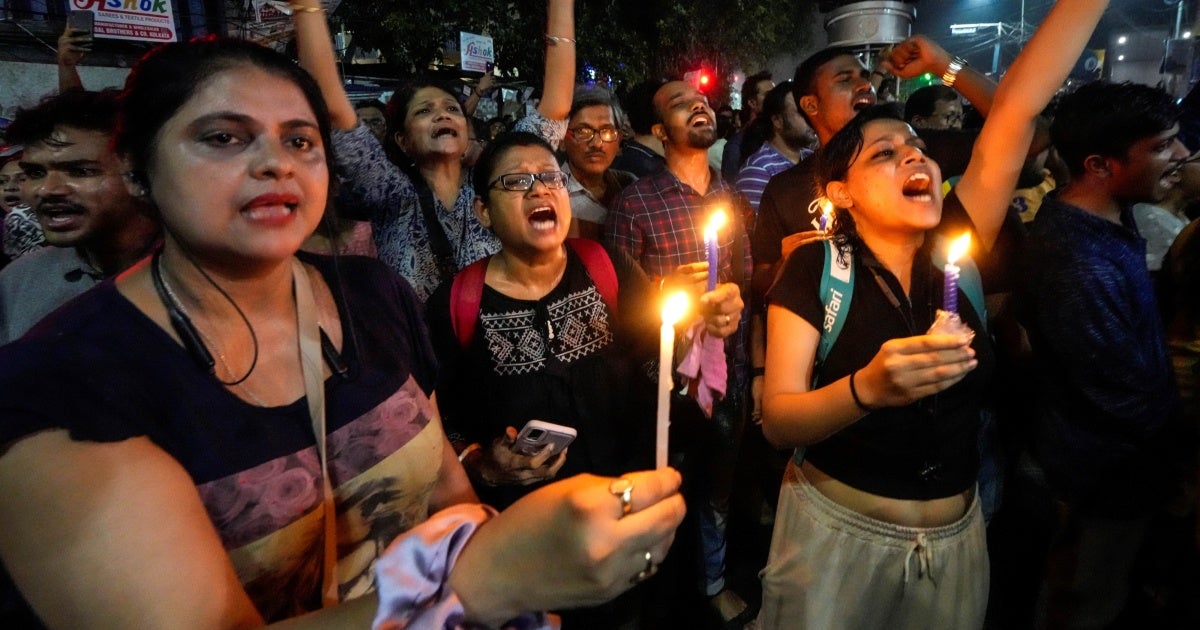Thousands of Indians have taken to the streets to protest the rape and murder of a doctor in a government hospital in Kolkata city last week. They are demanding justice and better security and facilities at medical campuses and hospitals.
The attack has cast a spotlight on how millions of Indian women remain exposed to abuse in the workplace and continue to face severe barriers to justice for sexual violence.
On August 9, a 31-year-old trainee doctor was found dead in a seminar room. News reports said she had fallen asleep in the classroom after a grueling 36-hour shift because there was no designated rest area for staff. The autopsy showed her body bore severe injuries, including fractures, suggesting a brutal assault. A male hospital volunteer worker has been arrested.
India has laws such as the POSH Act to address violence against women and protect them from sexual harassment in the workplace. The laws against rape and sexual abuse were strengthened after a 2012 gang rape and murder in Delhi sparked nationwide protests.
However, the authorities have failed to effectively enforce the law or ensure complaint committees tackle sexual harassment in both the formal and informal sectors.
While most private sector companies and government offices have set up internal complaint committees, many exist only on paper. Employers do little to improve workplace culture by raising awareness about what constitutes sexual harassment and consequences for such behavior.
Many protesters alleged that the Kolkata hospital’s administrator blamed the victim and attempted to cover up the crime. A mob attacked the hospital to disrupt protests, renewing concerns over barriers faced by victims and their families in cases of sexual violence. Federal investigators are now investigating the case.
Meanwhile, the West Bengal state chief minister has demanded the “hanging of the guilty” by August 18. Imposing the death penalty may have popular appeal after such a horrific crime, but it won’t protect girls and women from abuse and violence. That requires systemic reforms, including better enforcement of laws and protections in public spaces as well as in the workplace and in institutions. Human Rights Watch opposes all use of the death penalty.
Women and girls in India have the right to live and work without fear for their safety and to do so with dignity.




